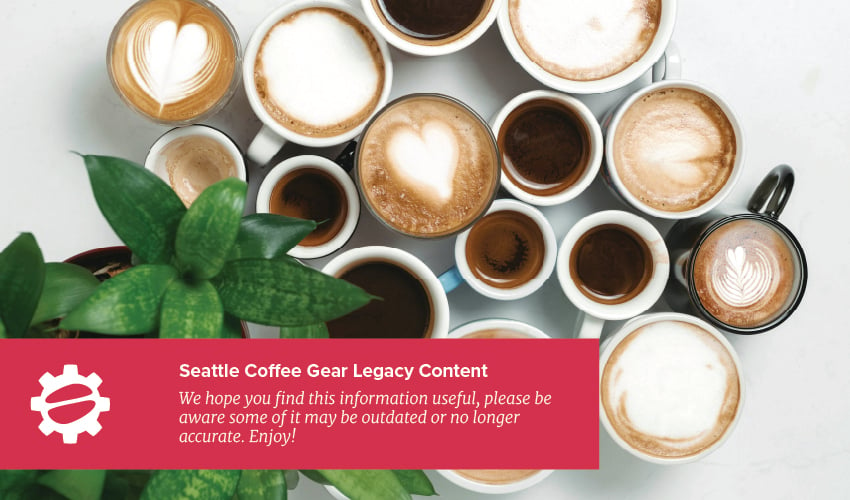Last night was the kick-off of the Coffee: From the Grounds Up lecture series that is being held in tandem with the Burke Natural History Museum's Coffee: The World in Your Cup exhibit. The series was kicked off by Mark Pendergrast, author of Uncommon Grounds, and was quite enjoyable. He discussed a lot of what is in his book, but here are some bits n' pieces we picked up that we thought were interesting:
- Caffeine is likely a natural pesticide that exists within the cherry to keep it from being decimated by tropical pests. This is similar to how coca leaves have a small amount of the chemical used to produce cocaine.
- There is a resounding myth around the discovery of coffee -- replete with dancing goats and monks -- but there is some evidence that, at some point, nomadic Ethiopian people discovered that grinding up the beans of the cherries, placing them in fat and then ingesting the mixture would help them travel long distances...and this practice is still in existence among nomadic tribes in that African region today.
- Brazil became such a big player because of two primary reasons: They had a lot of land and they were poised to take over the crop when the coffee rust disease nearly wiped out all of the bushes in Indonesia.
- Americans have a very emotional relationship to coffee and kind of act like it's our birthright that we should have access to cheap beans, regardless of market, environmental or political forces. There have been several times that frosts in Brazil resulted in an increase in bean prices -- which then spurred congressional hearings to discuss the cause of the prices and find a way to resolve it! Communism was listed quite often as a cause during much of the cold war, and in 1962 there was an international coffee price agreement that was in affect until 1989, when the cold war ended. It was in our best interests politically to support the large coffee growing regions of the world, lest they fall pray to the evils of communist ideals! :)
- There has always been and always will be a boom/bust cycle in coffee agriculture, due in part to the economic drivers of coffee growing regions as well as the basic growing cycle of the bushes themselves. They take a few years to produce quality cherries, so a time investment can be lost if too many are grown or not enough, etc. Around 2001, there was a huge bust due largely to an overproduction of robusta coming out of Vietnam, which was being grown to the detriment of the native highland peoples there that were being systematically and forcefully removed and persecuted in order to make room for coffee plantations. This is something that hasn't been talked about much that we're going to look into more.
- Haiti was the site of the first and only successful national slave revolt, which included the burning down of coffee plantations and tons of the native trees. There are some theories that posit that the heavily denuded nature of Haiti and the removal of the colonial structures could play a part in the fact that hurricanes ravage it so often and it is the poorest country in the western hemisphere to this day. Another interesting topic for further research.
- Because carbon dioxide is produced during the roasting process, coffee has to be a bit stale to begin with if it's going to be packaged for export; this makes it not an easily manageable product for mass production, because the packaging can explode if the coffee wasn't allowed to sit long enough. With the invention of the one-way release valve that is seen on many high end coffee bean bags these days, however, the coffee can be packaged more freshly and this could mean that roasting could take place in the growing country instead of after it's exported to the consuming country. This could mean that there is room for future economic benefit in the growing countries, who could start roasting the coffee as well and then ship it out in bags with release valves.

